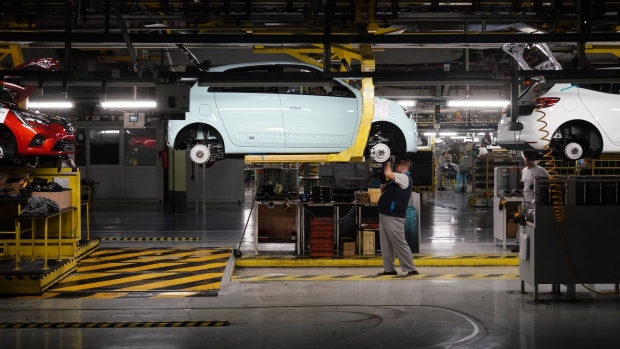Germany and Italy threatened to block an European Union plan that would have effectively banned new combustion-engine vehicles after 2035 unless the bloc’s executive comes up with a promised proposal to exempt cars that use climate-neutral synthetic fuels, according to Bloomberg.
Poland and Hungary have also signaled their opposition, potentially jeopardizing the EU’s green goals and an overall target of achieving climate neutrality by 2050. The plan requires carmakers to reach a zero-emissions target by 2035 and was provisionally agreed on by member states last year.
Germany successfully lobbied for a loophole in the rules, under which the European Commission agreed to make a proposal for registering vehicles running exclusively on CO2-neutral fuel after 2035.
German Transport Minister Volker Wissing said Wednesday that the Commission had failed to deliver the proposal, so the government in Berlin is unable to give its approval for the wider plan in a final vote by EU government ministers due March 7.
Overruling a deal made between lawmakers and member states at this late stage would likely be politically toxic, with the vote next week normally seen as a rubber stamp. A preliminary vote by EU officials on the issue due Wednesday was postponed to Friday.
“We need e-fuels as there is no alternative if we want to operate our vehicle fleet in a climate-neutral way,” Wissing said in an interview with public broadcaster ARD.
“Whoever is serious about climate-neutral mobility must keep all technological options open and also use them,” he added. “I don’t understand this fight against the car and why people want to ban some technologies.”
An EU spokesperson said that a transition to zero-emission vehicles was absolutely necessary to meet the bloc’s target of cutting emissions by 55% by the end of the decade — on the path to climate neutrality by the middle of the century. Road transport is one of the most carbon-intensive sectors in the EU, generating about a fifth of the bloc’s emissions.
Automakers have already moved well down the path of an all-electric future with unprecedented investments into the battery supply chain and new models.
While sales of electric cars are taking off, concerns over patchy charging times and comparatively high costs of an EV haven’t dissipated with Stellantis NV Chief Executive Officer Carlos Tavares warning of deep upheaval if consumers no longer have access to affordable vehicles. EVs are also less complex to make, triggering job cuts.
Concerns about the EU’s push have surfaced elsewhere too with Internal Market Commissioner Thierry Breton in November urging manufacturers to keep making combustion cars that help create quality jobs and drive exports.
Italy’s right-wing government led by Giorgia Meloni has long been critical of the plans to ban new combustion-engine cars. Deputy Premier and Transport Minister Matteo Salvini said that such a plan “makes no sense” and puts thousands of jobs at risk.
“The use of clean fuels compatible with combustion engines will allow the continuation of a green transition without economic impact on citizens,” according to a statement Tuesday from the environment ministry in Rome.


